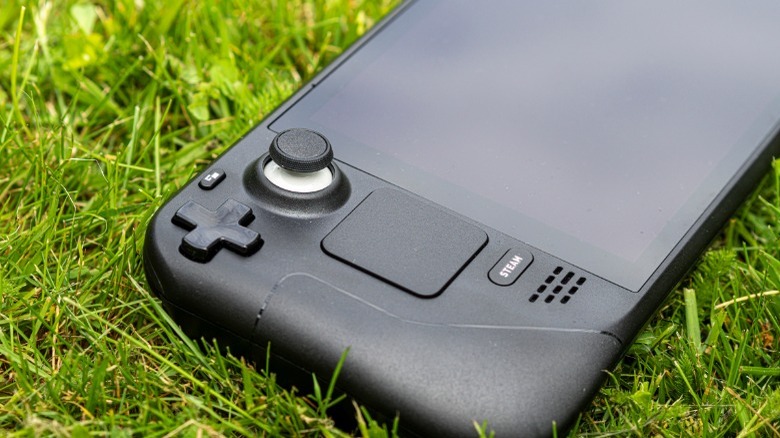How To Clean Your Steam Deck
Back in early 2022 when Valve's Steam Deck first launched, reviewers and the tech community at large suspected it would be a hit, but it's safe to say that few expected it to be such a huge one. Since the Steam Deck launched, the handheld managed to climb to the top of the Steam charts, selling over one million units according to some estimates.
Powering the Steam Deck is a custom AMD Zen 2 APU with four CPU cores, eight threads, and Radeon RDNA 2 graphics, all of which enable the Deck to run some fairly high-end games at reasonable frame rates and graphics settings, even on the go.
Valve's combination of performance and practicality wrapped up in a handheld device with direct access to its very popular game storefront has been a hit with consumers. The only issue with such a compelling mobile device is that it's bound to get dirty as you drag it along in your backpack and enjoy all your favorite hits.
Simpler is better when cleaning the Steam Deck
You might be tempted to use traditional methods for PC component cleaning, like copious amounts of isopropyl alcohol and compressed air, but you would be mistaken, according to Valve. What you should use to clean your Deck depends on which part you're cleaning. To clean the display, Valve recommends wiping it with a clean, dry, microfiber cloth to avoid damaging the display or its coating. A wipe with a small amount of isopropyl alcohol on a dry cloth should suffice to clean any plastic surfaces.
The most important thing you'll want to avoid when cleaning the Steam Deck is getting any liquids into the device, as this might cause problems with the electronics. This means you shouldn't use isopropyl alcohol or any other liquid anywhere near any of the buttons or other input interfaces, especially near the rubberized thumbsticks, since alcohol can wreak all sorts of havoc on rubber. You should also only use 100% isopropyl alcohol when cleaning the Steam Deck since anything less will probably have a small amount of water in the mixture, which could damage any electrical components it comes into contact with (via Sunrise Industrial Cleaners).

